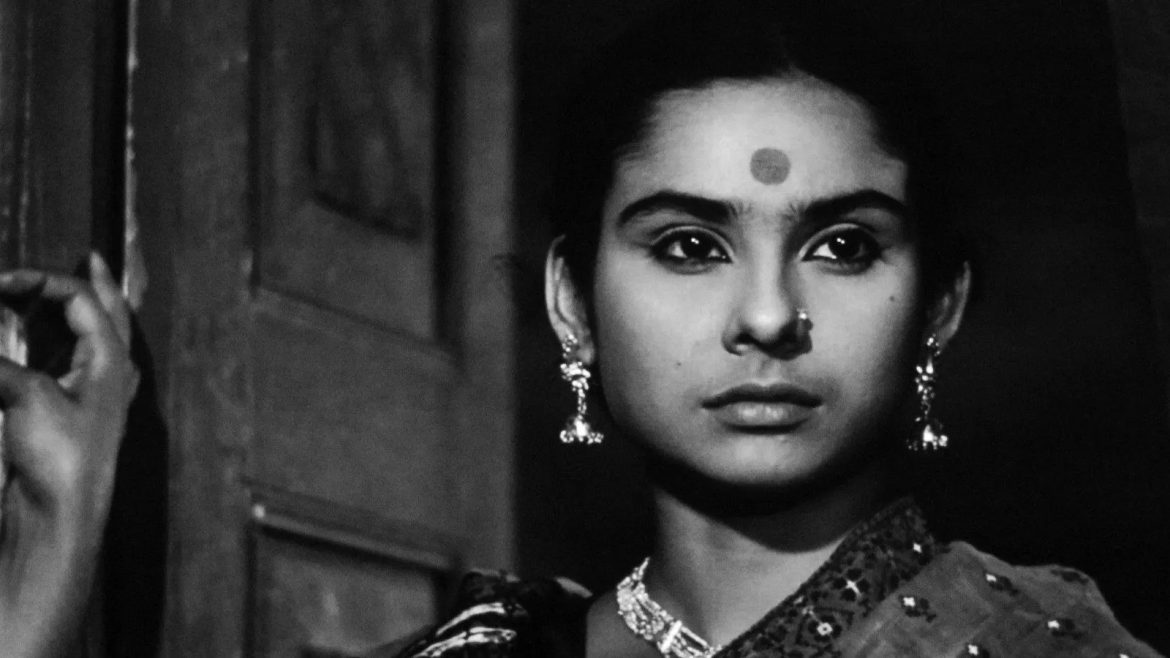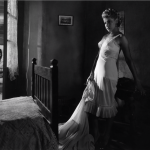• Seven titles by seven filmmakers of different nationalities make up the section that allows our cinephile audience to approach gems of the film heritage
Las Palmas de Gran Canaria, Friday, April 12, 2024. “Déjà Vu”, one of Las Palmas de Gran Canaria International Film Festival’s longest-running sections, recovers seven masterpieces that have been recently restored. Titles “produced in seven different countries by seven great filmmakers,” according to what programmer Gloria Benito says in the text of the catalog, which the audience will be able to watch for the first time during this twenty-third edition.
“When a film has just been restored, it returns to theaters and is treated as a new release. And that’s what this section is all about,” Benito points out. Thus, this 2024 will allow us to discover the indie comedy by American Nancy Savoca, Household Saints (1993, 125 min.); the debut feature by Moldovan director Kira Muratova, Brief Encounters (1967, 96 min.), or the film by Japanese Kōzaburō Yoshimura Undercurrent (1956, 104 min.).
The Dupes (Syria, 1972, 107 min.), by Egyptian director Tewfik Saleh, will return as well to the big screen, which will also show a classic of popular Mexican cinema, Carry Me in Your Arms (Mexico, 1954, 92 min.), by Julio Bracho; Indian author Ritwik Ghatak’s love drama Subarnarekha (1965, 128 min.); and Hungarian director and screenwriter Judit Elek’s first feature film The Lady from Constantinople (1969, 79 min.).
- MAKHDU UN | AL-
With this selection, “Déjà Vu” rescues from oblivion recently restored titles that join the festival circuit and that constitute in themselves authentic gems of the film heritage.
Based on the homonymous novel by Francine Prose, Nancy Savoca’s Household Saints describes the lives of a multicultural family trying to get by in New York’s Little Italy after World War II, focusing on the matriarch, her daughter and granddaughter. Shot in 1993, the filmmaker herself miraculously found a copy and its restoration, which became her third film, was exhibited at the New York Film Festival last year.
According to Gloria Benito, Kira Muratova “was already showing potential in her debut feature Brief Encounters” (1967), in which she reveals “complex and skilled stylistic resources.” The film, censored like so many of her other works by the Soviet Union, explores themes such as loneliness, the complexities of human relationships and the difficulties in reconciling work and personal life through an intricate love triangle.
The LPGCIFF will feature as well a Spanish premiere from 1956. It is Undercurrent, the film directed that same year by Kōzaburō Yoshimura and re-released in the 2023 Berlinale Classics section. “An elegant masterpiece and one of the most astonishing color films of that decade in Japan,” in Benito’s words. It tells the story of a working woman, a kimono designer, who rejects her father’s plans to marry her off and falls in love with a married man.
One of the great discoveries for the Festival’s programming team, as well as for a hundred professional critics who said so in a survey carried out by the Film Foundation, The Dupes (1972) is also part of “Déjà Vu”. Directed by Egyptian filmmaker Tewfik Saleh, “it is the first film to show Palestinian refugees portraying their own history, the first on-screen reaction to what was happening in the 1960s in the Middle East from the point of view of the Palestinian people.”
In its twenty-third edition, the capital’s film festival will screen the Mexican film Carry Me in Your Arms (1954) by Julio Bracho. This will be possible thanks to the copy found by filmmaker and documentarian Viviana García-Bresné in a family warehouse which, after being restored, premiered at the last Locarno Festival. ” This classic of popular Mexican cinema is about a woman who agrees to work for a wealthy landowner to save her father, thus losing her great love,” states the text of the catalog.
The section will also offer film lovers the opportunity to enjoy Judit Elek’s first feature film: The Lady from Constantinople (1969). A story about an elderly woman who has to swap her house for a smaller one, and during her search, she meets different and eccentric characters. The work, which was the debut of this Hungarian filmmaker awarded in Berlin and Locarno for her documentaries, arrives to Gran Canaria after the Rotterdam Film Festival presented a retrospective of her extensive, recently restored work in 2023.
Finally, the section rescues the work of Indian filmmaker Ritwik Ghatak, Subarnarekha (1965). The film is part of a trilogy that was re-released in New York that tells the story of three siblings who struggle to rebuild their lives amidst displacement and societal upheaval after the partition of Bengal.
The Las Palmas de Gran Canaria International Film Festival, organized by the Culture area of the Gran-Canarian capital’s City Council through Promoción de la Ciudad de Las Palmas de Gran Canaria, has received public assistance by the ICAA [Institute of Cinematography and Audiovisual Arts], the program for the internationalization of Spanish culture, PICE Visitantes, of Acción Cultural Española (AC/E), from the Consejería de Universidades, Ciencia e Innovación y Cultura del Gobierno de Canarias, as well as public support from Promotur Turismo Islas Canarias.
Among the Festival’s collaborators we may find Fundación Auditorio Teatro, Cines Yelmo, Las Arenas Shopping Center and Hotel Cristina by Tigotan, places which also function as venues or hold activities of the film event; as well as other institutions and companies such as Sagulpa, Hospitales San Roque, Jameson, Ikigai, Cientouno Group, el Centro de Cultura Audiovisual de Gran Canaria, Audiovisuales Canarias, Music Library &SFX, Blackout Films and International Bach Festival. Likewise, its market, MECAS, has been possible thanks to the sponsorship of the Gran Canaria Film Commission-Sociedad de Promoción Económica de Gran Canaria and the support of Canary Islands Film and Proexca.
The University of Las Palmas de Gran Canaria, the Mid Atlantic University, the CIFP Felo Monzón Grau-Bassas, the Canary Islands Film Institute, the Escuela Oficial de Idiomas, Digital 104, the Audiovisual Cluster of the Canary Islands, CIMA Asociación de Mujeres Cineastas y de Medios Audiovisuales, the Cartagena International Film Festival, the Gijón International Film Festival, the Barcelona Independent Film Festival and Very Good Script are also collaborators.
Share this Post








